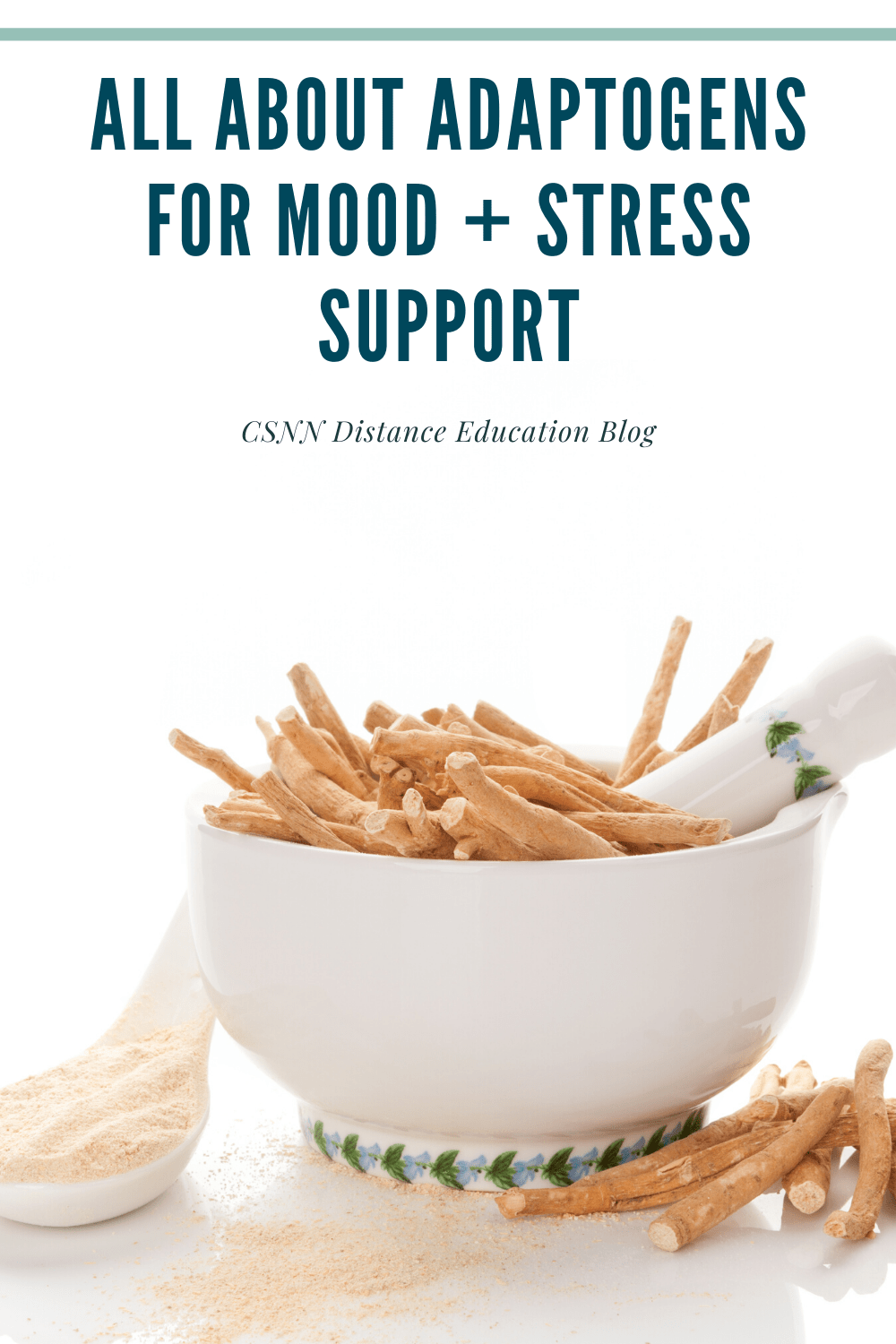 Adaptogens have become a wellness trend, but what are they really? An adaptogenic herb is one that supports our resilience to stress and low mood: they help us adapt. Stress management is the biggest factor when it comes to our health, so it’s imperative that we support our body by removing stressors whenever possible and increasing our resilience to stress.
Adaptogens have become a wellness trend, but what are they really? An adaptogenic herb is one that supports our resilience to stress and low mood: they help us adapt. Stress management is the biggest factor when it comes to our health, so it’s imperative that we support our body by removing stressors whenever possible and increasing our resilience to stress.
How they work
The body’s response to stress is enacted by many different components. While most drugs work by targeting a specific piece of the body’s response chain, adaptogenic herbs can support the stress response on many different levels of the process of managing stress. Adaptogens help keep the body in homeostasis (balance and optimal wellness) in the face of stress through mechanisms involving the hypothalamic-pituitary-adrenal axis (HPA axis). They modulate key factors in the stress response such as heat shock proteins, cortisol, nitric oxide, and more. For the science-lovers, you can read about the detailed mechanisms in the article linked below titled Effects of Adaptogens on the Central Nervous System and the Molecular Mechanisms Associated with Their Stress-Protective Activity.
While adaptogens tend to have a stimulating effect, they differ from other “stimulants” because their ability to stimulate the nervous system is through a different mode. They have an energy-boosting effect because they reduce stress and fatigue. They also are better for long term use for boosting energy than other stimulants because:
Commonly used adaptogenic herbs:
Ashwagandha (Withania somnifera)
Ashwagandha is a root from the Withania somnifera plant. It is considered one of the most important herbs in Indian Ayurveda. It is known as a “rejuvenating” herb because it is said to increase longevity, improve libido, boost mood, improve mental clarity, improve memory, contain antioxidants, increase resilience to stress, and support a strong immune system.
Rhodiola (Rhodiola rosea)
This root has been used in northern regions of Europe, Asia, and the arctic for a range of health benefits including support for anxiety, depression, stress, fatigue, and headaches. It is especially helpful for mental fatigue.
Schisandra (Schisandra chinensis)
Schisandra is a berry that is most popular through its use in Traditional Chinese Medicine. It is helpful for improving neurocognitive health and protecting the body’s systems from stress damage. It also supports a healthy immune system and reduces inflammation. Schisandra is especially beneficial for people experiencing physical fatigue.
Eleuthero/Siberian ginseng (Eleutherococcus senticosus)
Eleuthero, also known as Siberian ginseng although it is not a “true” ginseng and is not related to Chinese ginseng and American ginseng, is well-known for its stress-protective properties. It enhances neurocognitive function, protects the liver from stress, reduces inflammation, improves immune function, and reduces anxiety.
Tulsi/Holy basil (Ocimum tenuiflorum)
As evidenced by its name, holy basil (also called tulsi) is highly revered by those who use it. It is particularly important in Ayurveda as an “Elixir of Life”. In a review of 24 studies on the efficacy of holy basil in various uses for improving health, it was found that holy basil helped with stabilising blood sugar, blood pressure, and lipid profiles, as well as increasing resilience against stress and infection.
How to take them
Most of the adaptogenic herbs are available as teas, capsules, powder, and tinctures. You can create an elixir beverage using the powders in addition to cocoa or cinnamon powder for flavour. You can even find beverage mix powders that contain adaptogens so you can just stir it into the milk of your choice with a little natural sweetener. Some herbs have a pretty intense taste, so in those cases, capsule form would be ideal.
Please note that this article is for educational purposes only. It’s important to work with a holistic healthcare practitioner who is knowledgeable in herbalism if you want to take herbal supplements. While herbs are natural, they are also highly potent. They can interfere with medications and proper dosage is critical for safe and effective use.
References/further reading:
Contributed by Melanie Maxwell, R.H.N.
https://www.vibrantlywell.com/